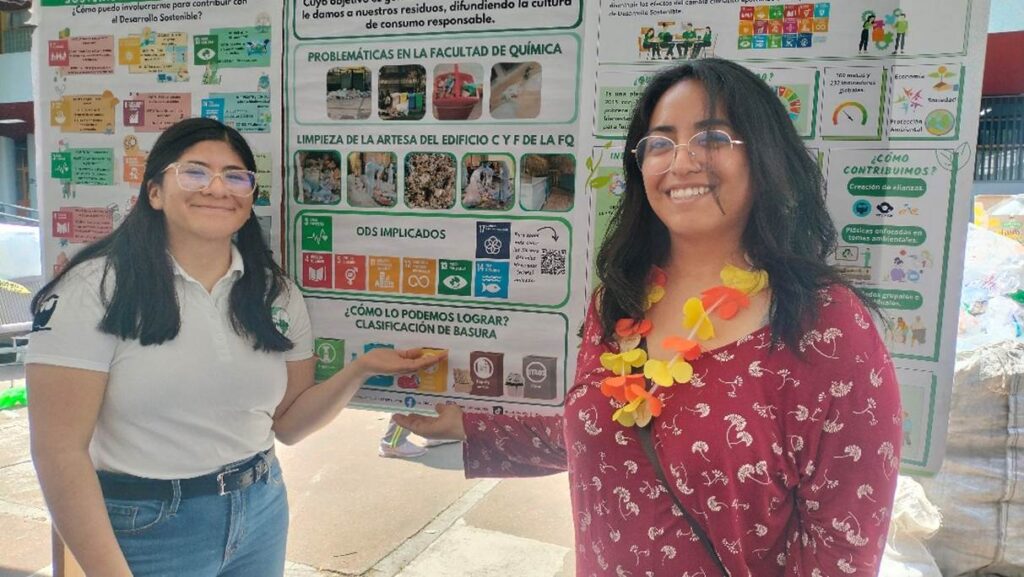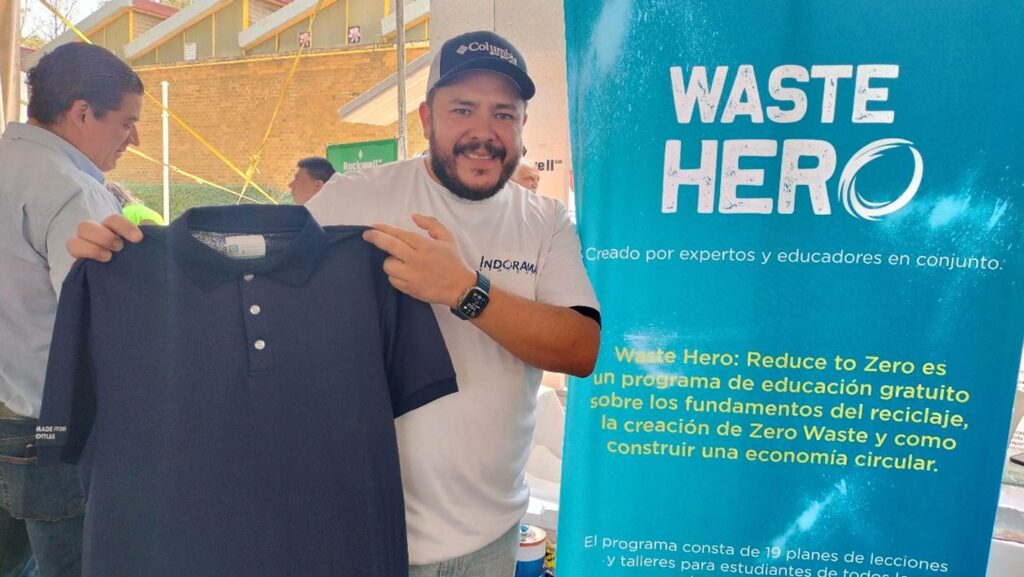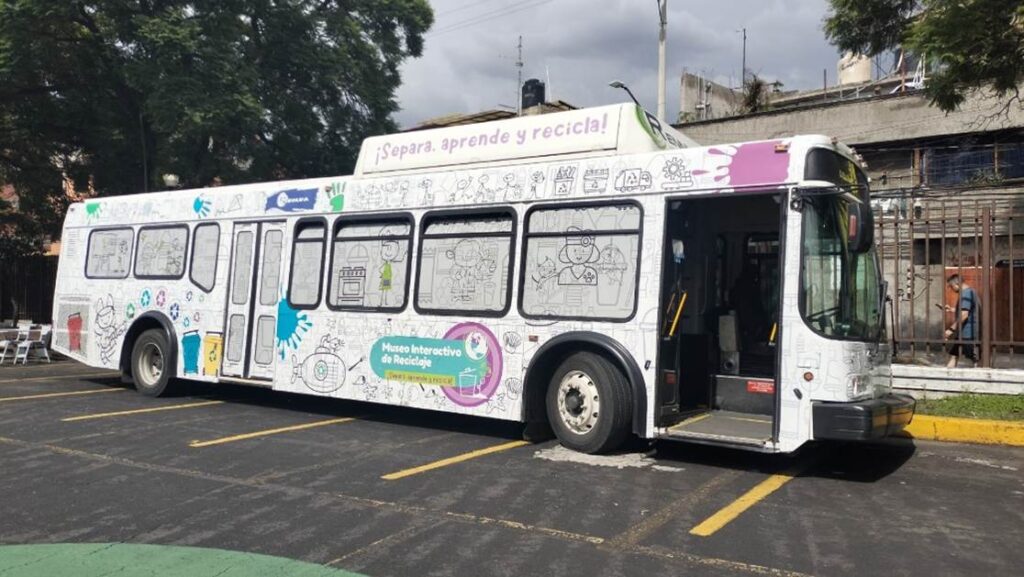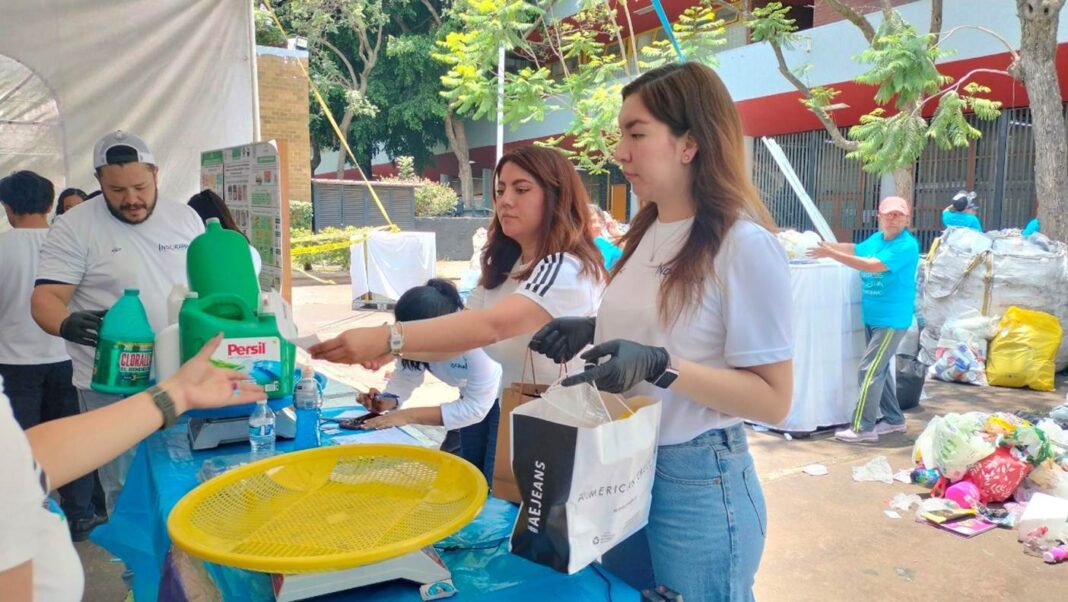Residents of Mexico City generate just over 12,000 tons of waste per day, 10% of which consists of plastic materials. In addition to their educational role, universities also appear to be becoming an important hub for waste collection.
By Guillermo Ayala Alanis
Mexico City (INPS Japan) – In Mexico City, universities are not only centers for education and research—they are also playing a growing role in promoting a culture of recycling. |SPANISH|JAPANESE|INDONESIAN|
With a population of around 130 million, Mexico ranks as the tenth most populous country in the world. Its capital, Mexico City, is home to over 22 million residents who generate more than 12,000 tons of waste each day—10% of which is plastic. As environmental awareness grows, universities are emerging as key players in both educating the public and facilitating proper waste collection and classification.
Plastics and the Challenge Ahead
Plastics have become deeply embedded in modern life thanks to their durability, lightness, strength, and low cost. However, their ubiquity poses serious environmental risks. According to a recent United Nations Environment Programme (UNEP) study, the world is expected to produce approximately 400 million tons of plastic waste in 2024, much of it from single-use products.
In Mexico City, tackling this challenge means engaging not just policy-makers or industry—but society as a whole. Universities are proving to be the ideal platforms for bridging these sectors and inspiring behavioral change.
Plastianguis: A University-Led Recycling Movement
For the past six years, the National Autonomous University of Mexico (UNAM), in collaboration with private partners, has hosted an annual event called Plastianguis. The initiative encourages the public to bring in plastic waste in exchange for essential goods such as rice, beans, soap, detergent, and pet food.
UNAM’s Faculty of Chemistry welcomed children, students, and adults alike during the 2025 edition. One participant, Alejandra López, emphasized that the rewards weren’t her motivation:
“I don’t come for the gifts—they’re just napkins or toilet paper. I come to help the planet. That’s what really matters.”
The 2025 Plastianguis collected 7,675 kilograms of plastic—500 kilograms more than the previous year.
Ximena, another attendee, said her passion for recycling influenced those around her:
“I spent six weeks with the same group of people, and they all ended up creating a recycling corner. It was exciting to see others take initiative.”
Youth Leadership: ConCiencia 2030
Daniela, a student at UNAM’s Faculty of Chemistry, is one of the organizers behind ConCiencia 2030, a youth-led initiative focused on environmental awareness and sustainability. Based on Sustainable Development Goals (SDGs) 4 (Quality Education) and 11 (Sustainable Cities and Communities), the program seeks to spread eco-friendly habits through fun, youth-to-youth engagement.

“People always ask me, ‘Why do you do this?’ And I say, ‘Why not?’ We don’t realize how much waste we generate. The day someone at a workshop correctly explained why a greasy pizza box doesn’t go in the cardboard bin—I knew my work had made a difference.”
Daniela has been part of ConCiencia for four years. For her, seeing others like Ximena apply what they’ve learned validates the entire effort.
Industry, Academia, and the Circular Economy
Miguel Ángel Delgado, President of the Plastic Industry Commission for Development and Responsibility of the Mexican Chemical Industry, sees plastic waste management as a shared responsibility between society, industry, and government.
“Society generates the waste, industry produces the goods, and government collects it. Universities help tie these elements together. Academia teaches people how to manage waste properly and reintegrate it into the circular economy.”
Fashion from Waste
Recycling isn’t limited to collection drives. In Querétaro, a group of young entrepreneurs showcased a T-shirt made from around 12 recycled PET bottles. By turning plastic into polyester fibers, they created a product that’s not only environmentally friendly but also durable and high-quality.
Oscar González of Indorama Ventures, which helped develop the product, explained:
“The quality is as good as a brand-new shirt—fresh, resistant, and long-lasting. Top brands like Nike and Adidas already use recycled fibers in their products.”
IPN and the Reciclatón
The National Polytechnic Institute (IPN), another leading public university, actively promotes environmental care. Partnering with the Mexico City government, IPN hosts Reciclatón events that collect appliances, batteries, and electronic waste.

Most recently, IPN’s Interdisciplinary Professional Unit of Engineering and Social and Administrative Sciences (UPIICSA) served as a collection site on June 27–28. The event gathered 7.1 tons of electrical and electronic waste.
A key attraction was the Interactive Recycling Museum, a converted bus operated by the sustainable tech company Rennueva. Visitors could explore the various phases of recycling as they occur in an actual plant.
Itsmietzil Castillo, Environmental Education Coordinator at Rennueva, emphasized that reducing consumption is even more important than recycling itself:
“The biggest environmental impact comes from cutting back on how much plastic we use in the first place. Recycling helps, but changing our consumption habits is essential to reducing pollution.”
The Bigger Picture
A single plastic container, if not recycled, can take up to 500 years to degrade. Globally, 400 million tons of plastic are used annually—40% of which is discarded after just one use.

By leveraging the power of education, community involvement, and youth leadership, Mexico’s universities are demonstrating how academic institutions can be engines of environmental change.
This article was produced as part of the joint media project between INPS Japan and Soka Gakkai International, an NGO in consultative status with ECOSOC.




